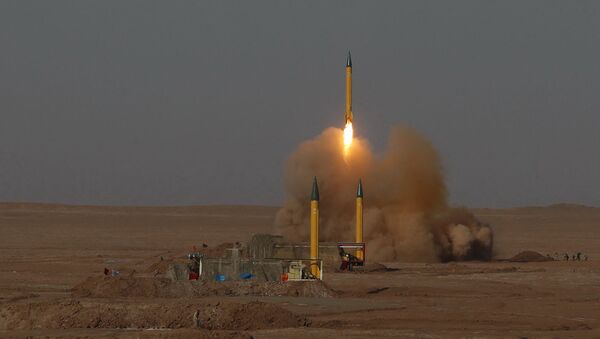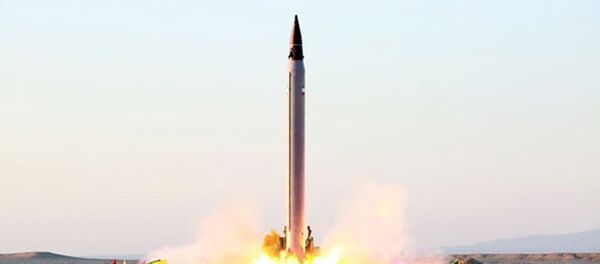Iranian missiles do not threaten the United States, and only act as a deterrent to neighbors, Brookings Institution fellow Paul R. Pillar wrote in a blog post on the National Interest.
The US has threatened sanctions against Iran for the development and production of missiles on Thursday, threatening the outcome of the Iranian nuclear deal.
"Iranian ballistic missiles pose no threat to U.S. interests as long as Iran does not have the fissile material to build nuclear weapons that could be put atop any of those missiles. Preventing such a nuclear capability is, of course, what the JCPOA is all about," Pillar wrote.
"Today, Iranian leaders look across the Gulf at their regional rivals in Saudi Arabia and see a substantial missile force incorporating technology from China and Pakistan. It would be a non-starter for any Iranian leader, regardless of his politics or ideology, to disavow continued efforts to try to improve and develop Iran's own force," Pillar added.
Because of this, treating Iran's missile program as part of its nuclear program is problematic, because the missile tests "do not involve a violation of anything that Iran has agreed to," Pillar wrote.




